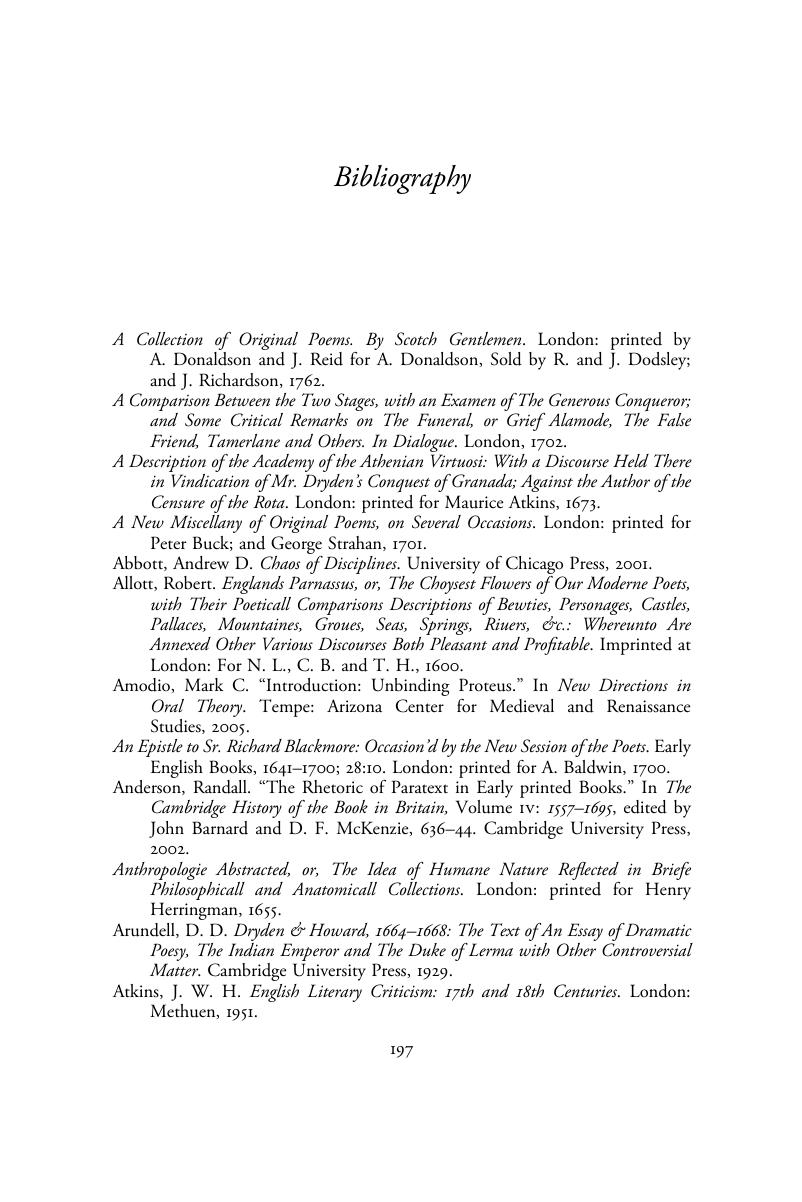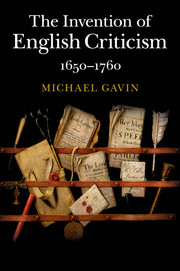Book contents
- The Invention of English Criticism
- The Invention of English Criticism
- Copyright page
- Contents
- Book part
- Introduction: the textualization of judgment
- Chapter 1 Criticism and the institutions of drama, 1645–1675
- Chapter 2 Politics of Parnassus
- Chapter 3 Women among critics
- Chapter 4 Criticism and the poetry of Anne Finch
- Chapter 5 Disciplining the dunces: literary knowledge inThe Dunciad Variorum
- Chapter 6 Boswell & Co.: conversation and criticism in the age of print
- Notes
- Bibliography
- Index
- References
Bibliography
Published online by Cambridge University Press: 05 May 2015
- The Invention of English Criticism
- The Invention of English Criticism
- Copyright page
- Contents
- Book part
- Introduction: the textualization of judgment
- Chapter 1 Criticism and the institutions of drama, 1645–1675
- Chapter 2 Politics of Parnassus
- Chapter 3 Women among critics
- Chapter 4 Criticism and the poetry of Anne Finch
- Chapter 5 Disciplining the dunces: literary knowledge inThe Dunciad Variorum
- Chapter 6 Boswell & Co.: conversation and criticism in the age of print
- Notes
- Bibliography
- Index
- References
Summary

- Type
- Chapter
- Information
- The Invention of English Criticism1650–1760, pp. 197 - 215Publisher: Cambridge University PressPrint publication year: 2015



